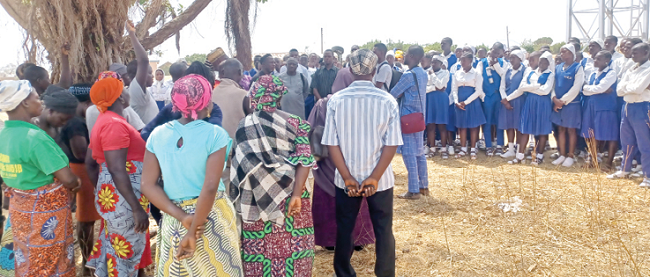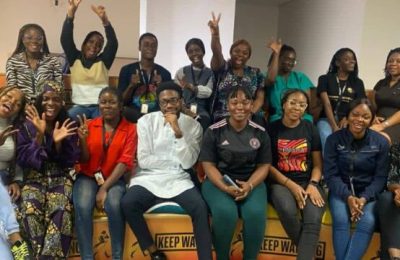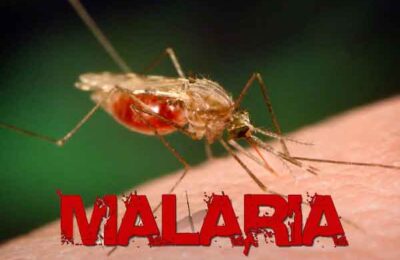Given that inadequate access to clean water has been linked to diseases like cholera, the importance of access to clean water sources has been emphasized. ISHOLA MICHAEL writes about a community in Bauchi State where access to clean water is a luxury that the locals cannot afford.
For the residents of Dasham Bakin Kogi, a village settlement in Tafawa Balewa Local Government Area of Bauchi State, it is a case of being close to modernization and civilization, yet very far from either of the two. Access to water in this community is a big deal: the residents trek at least three kilometres every day to get access to any water source from where they get water for domestic and other uses.
On the constantly congested Bauchi-Kabwir highway connecting the states of Bauchi and Plateau, Dasham Bakin Kogi is well situated. The town serves as the border between the two states and is primarily populated by the indigenous Ngas tribe, with a small number of Fulani cattle herders.

The majority of the residents of the village are farmers, and because nature has blessed them with good arable land, they farm year-round, both during and outside of the growing season. They are very proud of their work ethic and diligence and can brag about it wherever they are found.
Though they are easily accessible because of the good road network, considering the fact that the village is situated on a major highway, the residents are groaning over the lack of a good source of water for both domestic and other uses. As it is now, the people and animals take turns getting water from the only source—the river that flows but always dries during the dry season of the year.
World Water Day (WWD) is a day that is consistently observed on March 22nd around the world. The United Nations (UN) designated that day to raise awareness about the difficulties that people face in getting access to potable water. The UN-designated day was chosen to highlight the importance of water in the lives of people, animals, plants, etc., reinforcing the adage “Water is Life.”
Sadly, as important as water is, communities, especially those in developing countries, are still grappling with how to overcome the challenges of accessing this important component of human survival with little success.

According to a new analysis carried out by UNICEF, 78 million children in Nigeria are at the highest risk from a convergence of three water-related threats—inadequate water, sanitation, and hygiene (WASH)— related diseases and climate hazards.
According to the report, in Nigeria, one-third of children do not have access to basic water at home, and two-thirds do not have basic sanitation services. Hand hygiene is also limited, with three-quarters of children unable to wash their hands due to a lack of water and soap at home. As a result, Nigeria is one of the 10 countries that carry the heaviest burden of child deaths from diseases caused by inadequate WASH, such as diarrhoea.
Again, UNICEF Nigeria, while marking World Water Day a few years ago, said, “Children without access to safe water are more likely to die in infancy and throughout childhood from water-borne diseases. Diarrhoea remains the leading cause of death among children under five years of age in Nigeria. Water-borne diseases also contribute to stunting. A stunted child is shorter than she or he could have been and will never be able to reach his or her full cognitive potential. Lack of safe water and sanitation also makes children vulnerable to other threats beyond health. Many children in rural areas spend hours daily collecting water, missing out on the opportunity to go to school.”
The analysis of the impacts of a lack of access to clean water, communities struggling to obtain potable water for consumption and other domestic uses, and the effects of not having access to clean water and sanitation may be challenging to fully comprehend until they are physically experienced.
A CSO, Women Development Association for Self Sustainance (WODASS), the Rural Water and Sanitation Agency (RUWASSA), and WaterAid Nigeria recently conducted a field visit to the Dasham Bakin Kogi community in Bauchi State after the commemoration of World Water Day 2023 to gauge the level of suffering and despair the locals were experiencing.
In Bauchi State, which has a population of over six million, the majority of whom live in semi-urban and rural areas, there is a severe lack of access to potable water. As a result, residents, particularly those in rural areas, must endure unimaginable hardship and lose countless hours of productive manpower searching for water.
According to the Multiple Indicator Cluster Survey of 2021 (MICS 2021), in Bauchi State, access to improved sources of drinking water is 55.9 percent, while the use of basic drinking water services stands at 55.3 percent, which is below the region and national average.
Dasham Bakin Kogi will appear less impoverished upon first arrival: there are electricity poles with service cables, mediocre schools, manageable health facilities, and kiosks where locals conduct business. There are activities that demonstrate that people reside in the area and conduct business there. Underneath those, however, is the residents’ constant moaning about the lack of good sources of potable water.
The people of Dasham Bakin Kogi are only joyful and enthusiastic during the rainy season, when there is an abundance of water; in fact, they have mastered the art of collecting rainwater for use.
While interacting with the journalists, the Village Head of Dasham Bakin Kogi, Mr. Yunana Joshua, lamented that “We have existed like this for years; the lack of good sources of good water has remained a cause of concern for us here. We are very close to civilization and modernization, yet we are far away from these two aspects of life.”
He stressed that “as you can see, we are situated on the major federal highway that links Bauchi and Plateau states; in fact, we are the gateway to both states. We have electricity supply, schools, health facilities, and other things, but the king of them all, water, is not easily and readily available for us.”
The worried traditional ruler said that “the situation is worst now that everywhere is dried up. The river is dried, and our youths on a daily basis will go to the dried river to dig out sands in order to get water. Our children spend the whole day fetching the water home. The sad thing is that cows will just come and chase the people away in order to get water to drink. In the process, they cover up the dug site with sand. It is such a pathetic situation.”
He added that the situation has negatively impacted the issues of education and health as students have to go looking for water every day, thereby losing hours that they would have spent studying in school, while the health facility cannot function well without water supply.
Though WaterAid Nigeria has intervened by beginning the process of drilling a solar-powered borehole in the community, Joshua wants the project to be expanded to reach the entire community.
Also speaking on the problem, the chairman of Dasham Bakin Kogi Community Development Association, Simon Wokdima Arbe, lamented that for years, the lack of sources of good water has retarded the development of the community, which, though semi-urban, has suffered neglect.
Arbe said that as an association, members have been doing their best to ensure that wells are dug at different strategic locations around the town to reduce the burden, saying, however, that during the dry season, the suffering of the people gets to its peak.
He corroborated what the village head said that social interaction is at its lowest ebb in the area due to the lack of adequate clean water for use by the people, a development he said has made life unbearable for the people.
He also commended the efforts of WaterAid Nigeria, RUWASSA, WODASS and other relevant agencies for coming to the aid of the people by drilling a solar-powered borehole, saying that it should be extended to other parts of the village.
The principal of Government Secondary School in the village lamented that the lack of good water has negatively impacted education as students normally come to school very late, or in some cases, they don’t come to school at all, going about to look for water.
He appealed to the concerned authorities to come to the aid of the students by making water readily available, saying that the female students are the worst hit considering the fact that they constantly need water to keep clean, especially during their menstrual cycle.
In a brief sensitization campaign, Bashir Shuaibu of RUWASSA told the community members to ensure that the sources of the water they are using now, before the completion of the borehole, are good and clean.
He warned them against using just any water source, stressing that good water is not determined by its physical appearance and colour but by testing to ascertain its quality, just as he also educated them that there must be not less than 40 feet between a pit latrine and a well within the same compound in order to avoid contamination.
Also speaking at the occasion, Aisha Aliyu from RUWASSA stressed the need for the raising of different flags (yellow and red) to determine the state of the water situation in the community.
She particularly called on women to ensure that the source of water they are using is good and healthy, stressing that as women, the duty of protecting the family lies on them.
Magaji Barde of WODASS said in his remarks that a good source of water must be ensured in every household in order to reduce the risk of getting infected by waterborne diseases and assured that RUWASSA and WODASS, through funding by WaterAid Nigeria, will continue to ensure that the community has a good source of portable drinking water.







